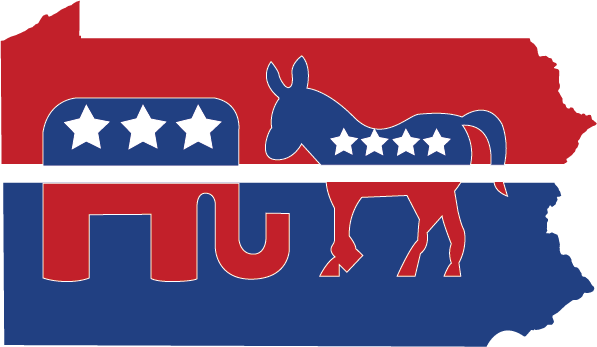Voting in the Pennsylvania primary elections
What do I need to be able to vote in a primary election?
The deadline to register as a Pennsylvania voter passed on April 16. Anyone who did not register to vote by this date will not be able to vote in the primaries.
For registered voters, the eligibility criteria for primary elections vary from state to state. In Pennsylvania, citizens who wish to participate in the primaries for either political party must be registered and enrolled with that party.
In addition, registered voters are eligible to cast votes in any sort of special election occurring around the same time as the primary election.
First-time voters may be asked to provide some sort of identification when entering the polling place, but it does not have to be a photo ID. Acceptable forms of identification include Pennsylvania driver’s licenses and permits, student or employee ID cards, and a U.S. passport, etc. Although poll workers may ask for identification, they are not allowed to stop people from voting based on their ID alone.

What if I can’t make it to the polls on May 15?
Pennsylvania is one of the few states which do not allow early voting, so there is no designated time to vote in-person before the election date.
Similarly, Pennsylvania does not allow no-excuse absentee voting, meaning that, without an excuse for missing election day, a citizen cannot vote by absentee ballot. People who are eligible to vote by absentee ballot include college students living at school, people on vacation, people with disabilities which make it impossible to get to the polls, and people observing religious holidays, among others.
If someone is a citizen of another state besides Pennsylvania and cannot make it back in time for that state’s primaries (dates vary by state), that person can submit an absentee ballot according to that state’s rules. These rules vary from state to state. In order to obtain an absentee ballot in Pennsylvania, it is required that the voter submit an application by the Tuesday before the election and return the ballot by 5:00 p.m. on the Friday before the election.
What if I have a problem at the polling place?
If a voter’s eligibility is cast into doubt, that person may need to cast a provisional ballot. This kind of ballot will record a vote, but will not be counted if the person who cast it turns out to be ineligible to vote.
Voters may need to cast a provisional ballot if their name does not appear in the poll books (district registers) but they claim to be registered, if they do not present a valid form of identification at the polling place, or if an election official claims that they are not eligible to vote.
The only citizens required to vote by provisional ballot are those ordered to do so by the court, and those who are casting their vote late as a result of a preapproved polling place extension.
Citizens voting by provisional ballot will receive a receipt with information about their ballot. Seven days after the election, a provisional ballot voter may contact or visit the Department of State. By presenting the information on the receipt, provisional voters can find out whether or not their votes were counted.














































